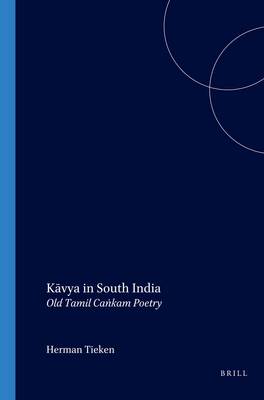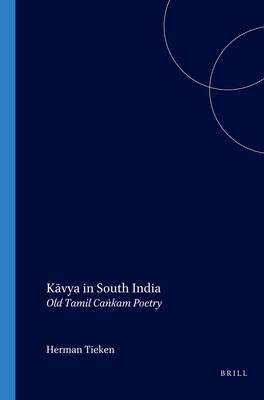
- Afhalen na 1 uur in een winkel met voorraad
- Gratis thuislevering in België vanaf € 30
- Ruim aanbod met 7 miljoen producten
- Afhalen na 1 uur in een winkel met voorraad
- Gratis thuislevering in België vanaf € 30
- Ruim aanbod met 7 miljoen producten
Zoeken
Omschrijving
Old Tamil Caṅkam poetry consists of eight anthologies of short poems on love and war, and a treatise on grammar and poetics. The main part of this corpus has generally been dated to the first centuries AD and is believed to be the product of a native Tamil culture.
The present study argues that the poems do not describe a contemporary society but a society from the past or one not yet affected by North-Indian Sanskrit culture. Consequently the main argument for the current early dating of Caṅkam poetry is no longer valid. Furthermore, on the basis of a study of the historical setting of the heroic poems and of the role of Tamil as a literary language in the Caṅkam corpus, it is argued that the poetic tradition was developed by the Pāṇṭiyas in the ninth or tenth century.
This volume deals with the identification of the various genres of Caṅkam poetry with literary types from the Sanskrit Kāvya tradition. Counterparts have been found exclusively among Prākrit and Apabhraṁśa texts, which indicate that in Caṅkam poetry Tamil has been specifically assigned the role of a Prākrit. As such, the present study reveals the processes and attitudes involved in the development of a vernacular language into a literary idiom.
The present study argues that the poems do not describe a contemporary society but a society from the past or one not yet affected by North-Indian Sanskrit culture. Consequently the main argument for the current early dating of Caṅkam poetry is no longer valid. Furthermore, on the basis of a study of the historical setting of the heroic poems and of the role of Tamil as a literary language in the Caṅkam corpus, it is argued that the poetic tradition was developed by the Pāṇṭiyas in the ninth or tenth century.
This volume deals with the identification of the various genres of Caṅkam poetry with literary types from the Sanskrit Kāvya tradition. Counterparts have been found exclusively among Prākrit and Apabhraṁśa texts, which indicate that in Caṅkam poetry Tamil has been specifically assigned the role of a Prākrit. As such, the present study reveals the processes and attitudes involved in the development of a vernacular language into a literary idiom.
Specificaties
Betrokkenen
- Auteur(s):
- Uitgeverij:
Inhoud
- Aantal bladzijden:
- 270
- Taal:
- Engels
- Reeks:
- Reeksnummer:
- nr. 10
Eigenschappen
- Productcode (EAN):
- 9789069801346
- Verschijningsdatum:
- 1/01/2001
- Uitvoering:
- Paperback
- Formaat:
- Trade paperback (VS)
- Afmetingen:
- 170 mm x 239 mm
- Gewicht:
- 907 g

Alleen bij Standaard Boekhandel
+ 259 punten op je klantenkaart van Standaard Boekhandel
Beoordelingen
We publiceren alleen reviews die voldoen aan de voorwaarden voor reviews. Bekijk onze voorwaarden voor reviews.








